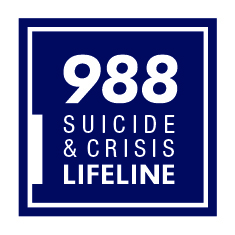Does your child lie awake at night, plagued by worry and anxiety? Major life changes or external pressures, and difficult situations can easily induce high levels of anxiety in your teen. Perhaps a tumultuous relationship at school, or a looming project deadline. Maybe college applications or an upcoming sports tryout. Any stressful situation, good or bad, can cause you to feel anxiety or worry.
Anxiety is a normal part of growing up, but when it becomes excessive and starts affecting your teenager’s daily life, it may be a sign of a more serious problem. Teenage anxiety is becoming an increasingly common issue, and it’s important to know how to recognize the signs so that you can help your child get the support they need.
These are the most common signs of an anxiety disorder in teenagers.
Featured: A Parent’s Guide to Anxiety
9 Signs of Anxiety in Teens
1. Worry and fear
One of the most obvious signs of anxiety is excessive worry and fear. Teenagers with anxiety may worry about a variety of things, such as school, relationships, and the future. They may also have intense fears that are out of proportion to the situation.
2. Physical symptoms
Anxiety can cause physical symptoms, such as a rapid heartbeat, sweating, shaking, and trouble breathing. These symptoms may be triggered by a specific event or situation, or they may occur for no apparent reason.
3. Avoidance behavior
Teenagers with anxiety may avoid situations that make them feel anxious, such as social events, public speaking, or even leaving the house. This avoidance can limit their ability to participate in normal activities and can lead to feelings of isolation and loneliness.
4. Difficulty concentrating
Anxiety can also interfere with a teenager’s ability to concentrate and focus. They may struggle to complete schoolwork or to remember information.
5. Changes in sleep patterns
Anxiety can cause your teenager to lie awake at night and worry about things that are causing them anxiety. You may notice your teenager getting less sleep than usual.
6. Negative thoughts
Teenagers with depression may experience negative thoughts, such as feeling guilty, worthless, or hopeless. They may also have thoughts of death or suicide.
7. Irritability and restlessness
Teenagers with anxiety may be easily irritable and restless, and they may have trouble sitting still or relaxing. They may also experience nightmares.
8. Body aches and pains
Anxiety can also cause physical symptoms such as headaches, stomachaches, and muscle aches. These symptoms may not have an obvious cause and can be a sign that something more serious is going on.
9. Panic attacks
Sometimes an intense, physical reaction is the body and brain’s way of processing something that causes anxiety. A panic attack can be an incredibly disruptive and even scary experience. Symptoms of panic attacks can be racing thoughts, heart palpitations, hyperventilating, shaking, and dizziness.
Identifying an anxiety disorder in your teenager can be difficult because their brains and bodies are already going through some major changes and development. But chronic anxiety can severely disrupt your child’s life.
Each of these individual signs may not be an indication of anxiety, but if you start to notice these symptoms stack up, it may be time to check in on your teenager and offer them support.
Ways to Support a Teen Struggling with Anxiety
It’s important to remember that anxiety is a treatable condition, and the earlier it’s addressed, the better the outcome will be. If you suspect that your child is struggling with anxiety, the first step is to talk to them and let them know that you’re there to support them. Encourage them to seek help from a mental health professional, and offer to help them find a therapist or counselor.
Anxiety disorders are an increasingly common illness and can manifest in a multitude of different ways. All mental health problems are treatable, medical conditions, so it’s important to remember that shame and guilt are never the way to approach something struggling with anxiety.
Recognizing the signs of teenage anxiety is crucial for ensuring that young people receive the support and care they need. If you’re concerned about your child, don’t hesitate to reach out and offer your support. With the right help, teenagers can overcome anxiety and go on to lead happy, healthy lives.
Need Help? Know Someone Who Does?

Contact the 988 Suicide and Crisis Lifeline if you are experiencing mental health-related distress or are worried about a loved one who may need crisis support.
Call or text 988 | Chat at 988lifeline.org
Connect with a trained crisis counselor. 988 is confidential, free, and available 24/7/365.
Visit the 988 Suicide and Crisis Lifeline for more information.
We know that you walk a careful balance when it comes to parenting your kids and teens through the 21st century.
Whether you are facing a tough conversation with your child and don’t have the words to begin, or you’re getting a jumpstart on the teenage years ahead, Axis is for you.
Join us as we parent together from elementary to high school and beyond.Written in partnership with Reach The Lost